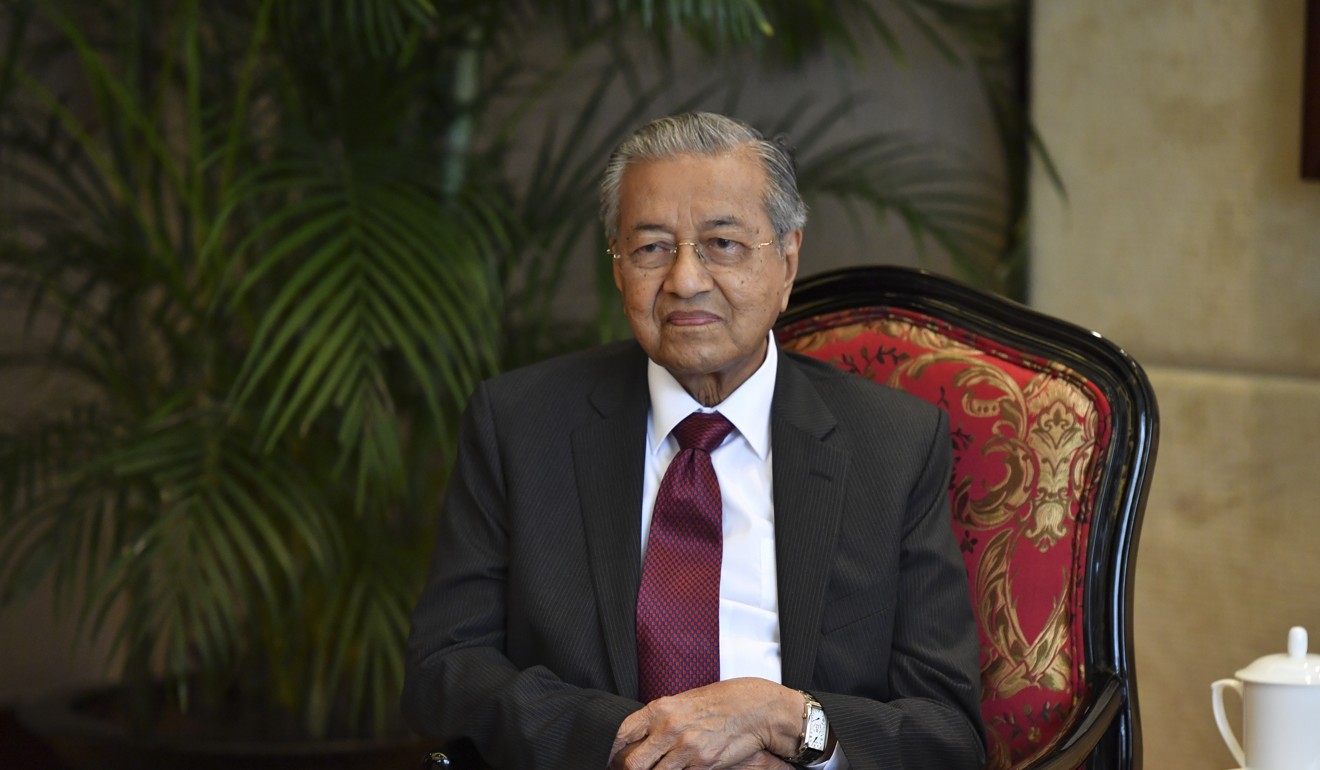
Malaysia plans to reduce inequality, even at the cost of slower growth
The Pakatan Harapan government’s 11th Malaysia Plan is focused on pushing for inclusive growth, boosting productivity and accelerating innovation – even if it means a wider budget deficit
In reviewing the 11th Malaysia Plan, the Economic Affairs Ministry pointed to how a comparison of the country’s 13 states and three federal territories showed higher incidences of poverty in some areas, in spite of the previous government’s promises that the establishment of regional economic corridors would spur growth.
The East Malaysian state of Sabah had a GDP per capita of 22,098 ringgit (US$5308) while the northern region of peninsula Malaysia recorded GDP per capita of 29,725 ringgit.
Malaysian ex-deputy PM Ahmad Zahid Hamidi detained over alleged misappropriation of funds
The national average two years ago was 38,915 ringgit. The poverty rate in Sabah was 2.9 per cent at the time, compared to the national average of 0.4 per cent.

Pakatan Harapan came into power in May this year, toppling the Barisan Nasional coalition that had ruled for more than six decades.
Led by 93-year-old former premier Mahathir Mohamad, who jumped ship to join the opposition and execute his political comeback, the new administration swiftly set about stamping out corruption and pledged institutional reforms.
In Parliament on Thursday, the government announced plans to accelerate innovation, boost productivity and push for inclusive growth.
Mahathir said these reforms were needed for Malaysia to recover and rebuild, before re-emerging as an “Asian tiger”.
“The principles of good governance, strong institutions as well as integrity and accountability will be reinforced throughout the administration of the new government to prevent corruption, leakages, misappropriation and abuse of power,” he said, as ousted premier Najib Razak, now a member of the opposition and facing corruption charges, looked on.
Political economist Edmund Terence Gomez described Mahathir’s list of institutional and political reforms as “commendable” but agreed they would not give the country of 31 million a much-desired economic jump-start.
“What Mahathir had to deal with in this review was to work with what Najib had conceived as part of his government transformation plan in 2009. It was also a consequence of the 2013 general elections,” Gomez said.
He was referring to how Najib instituted a slew of populist moves to consolidate his power base after his coalition lost the popular vote in 2013, though they still managed to form a government.
Among these was the so-called Bumiputra economic community, a race-based policy initiative to improve the economic standing of the majority ethnic Malay group as well as the indigenous Orang Asli.
Malaysian PM-in-waiting Anwar Ibrahim makes official return to politics
“In 2009 when Najib took power, to inspire economic confidence he removed certain business-oriented measures of affirmative Bumiputra action,” said Gomez.
“After a backlash, he resolved to introduce market-friendly affirmative action, and instituted this Bumiputra economic community policy,” he said, adding that the Mahathir administration’s continuation of the policy smacked of populism to woo the nation’s sizeable Malay vote base.
“There is a dire need to review this policy. The government must recognise it was introduced as a political tool to garner support. There are other institutions through which the government can target the people they want to help, bring about development, and nurture poor Bumiputeras and other communities,” he said.

Gomez said reforms should be extended to government-linked companies and statutory bodies under certain ministries, such as the Ministry of Rural Development.
“This ministry receives the second largest volume of funds and has major statutory bodies and institutions under it at both state and federal level.
“So why was there no discussion on reform of these bodies so they can function in a proper manner and play their role to solve the inequality problems?”
Besides government reform, inclusive development and balancing regional development, the government also promised to improve public service efficiency, boost human capital development and strengthen economic growth.
While the next few years of slower growth would delay its aspirations to become a high-income nation, the government explained that GDP should not be the only measure of a developed and inclusive country.
“Macroeconomic policies will need to be calibrated to be able to respond to economic shocks as well as to enhance economic resilience” said economic affairs minister Azmin Ali.
“Nonetheless, some temporary trade-offs on economic growth may be necessary in the short term in order to ensure a firmer foundation for more sustainable and inclusive growth in the long term.”

